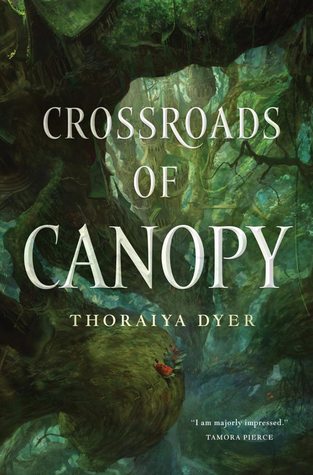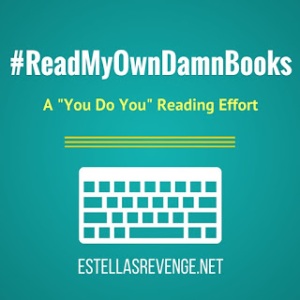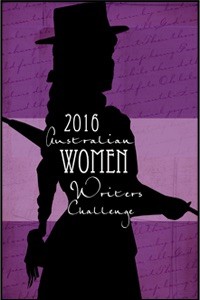 Tulliæn spans a fractured mountaintop, where the locals lie and the tourists come to die. Try the honey.
Tulliæn spans a fractured mountaintop, where the locals lie and the tourists come to die. Try the honey.
Briskwater crouches deep in the shadow of a dam wall. Ignore the weight of the water hanging overhead, and the little dead girl wandering the streets. Off with you, while you still can.
In Haverny Wood the birds drink blood, the dogs trade their coughings for corpses, the lost children carve up their bodies to run with the crows, and the townsfolk stitch silence into their spleens. You mustn’t talk so wild.
The desert-locked outpost of Boundary boasts the famed manufacturers of flawless timepieces; those who would learn the trade must offer up their eyes as starting materials. Look to your pride: it will eat you alive.
Sooner or later, in every community, fate demands its dues — and the currency is blood.
Published by Twelfth Planet Press.
This review is presented as part of my commitment to the Australian Women Writers Challenge and A Journey Through the Twelve Planets.
I purchased this book.
Cherry Crow Children by Deborah Kalin is the twelfth book in Twelfth Planet Press’s Twelve Planets series of collections, which have focused on the work of female Australian speculative fiction authors. Individual stories in Cherry Crow Children, and the collection as a whole, have been shortlisted for Ditmar, Australian Shadows and Shirley Jackson Awards, and one story, The Miseducation of Mara Lys won two Aurealis awards in 2015, for Best Horror Novella and Best Young Adult Short Story.
The stories in this collection are not technically connected in terms of plot, place or characters, but there is a thread running through all of them: all take place in strange, haunted places, and reading them gives a feeling of walking along the edge, of sensing a discomfort at the very periphery of awareness that you can’t quite identify. All are incredibly evocative and written with a lyrical, haunting style, and all are–as all of the stories and novellas in the Twelve Planets series–of extremely high quality.
The collection opens with Wages of Honey, which is on the surface, a deceptively simply story of a man searching for his missing cousin. The strangeness seeps in as he enters the mountaintop town where his cousin was headed, a place known as Tulliæn, where death and honey are equal fascinations. Tulliæn seems a place drawn from both dream and nightmare, where bridges and streets end abruptly, and suicide almost seems to be revered and everything is soaked with honey. This is an incredibly beautiful and unsettling story, and has a vividness that won’t be forgotten by any reader any time soon.
The Briskwater Mare takes the reader into another strange place: Briskwater, where the water surrounding the town is haunted by the ghost of a young girl. The story is told through the eyes of Eli, a young girl who has always been told that one day the ghost will claim her. There is a very fairytale feel to this story–but the kind of dark fairytale that was used to warn children not to stray from the path–and a kind of inevitability that makes it impossible to look away from events, even as you wish that everything could be different.
The Miseducation of Mara Lys was, for me, the standout story of the collection, and I’m not surprised that it won two Aurealis Awards. It’s another story that can be summed up in a deceptively simple fashion: a girl, Mara Lys, wishes to gain admission to an elite school of watchmakers. Except that this is a Deborah Kalin story, and if you’ve read the first two stories in the collection, you know from the beginning that none of this story is going to be that simple. There is a dense amount of worldbuiilding in this story, and yet all of it is handled so lightly that none of it is a chore to read. Some of the details in this story absolutely blew me away (I’m not going to spoil any of it, because it would detract from their impact to know them going in) and I would pay good money to read more set in this world.
The last story in the collection is The Cherry Crow Children of Haverny Wood, from which the collection’s title derives. This brings the reader to yet another strange and unsettling place, this time a village in Haverny Wood, where the people seek to protect themselves from the things that live beyond the trees. Again, this story has the feel of a dark fairytale, and is filled with evocative and unforgettable images and ideas. Probably my second favourite of all of the stories, and another that I’d love to see more works set in.
Overall, this is another absolutely stellar collection, and it a fitting end to the original cycle of twelve volumes in the Twelve Planets (a thirteenth volume is forthcoming from Isobelle Carmody, which was added at a later date). It could be best described as literary horror, but it is a kind of horror that will hold appeal to many readers who usually shy away from the genre. There is some gore here and there, but none of it is gratuitous – think of Red Riding Hood being eaten by the wolf rather than a deranged serial killer stalking the innocent, and you will come somewhere close. Like all of the collections in the Twelve Planets, Cherry Crow Children is highly recommended, and is probably one of my favourites of all of the collections.


 Seventeen-year-old Star and her sister Nene are orphans, part of a thirteen-wagon caravan of nomadic traders living hard lives travelling the Sand Road. Their route cuts through a particularly dangerous and unforgiving section of the Dead Red Heart, a war-ravaged desert landscape plagued by rogue semi-sentient machinery and other monsters from a bygone age.
Seventeen-year-old Star and her sister Nene are orphans, part of a thirteen-wagon caravan of nomadic traders living hard lives travelling the Sand Road. Their route cuts through a particularly dangerous and unforgiving section of the Dead Red Heart, a war-ravaged desert landscape plagued by rogue semi-sentient machinery and other monsters from a bygone age.







